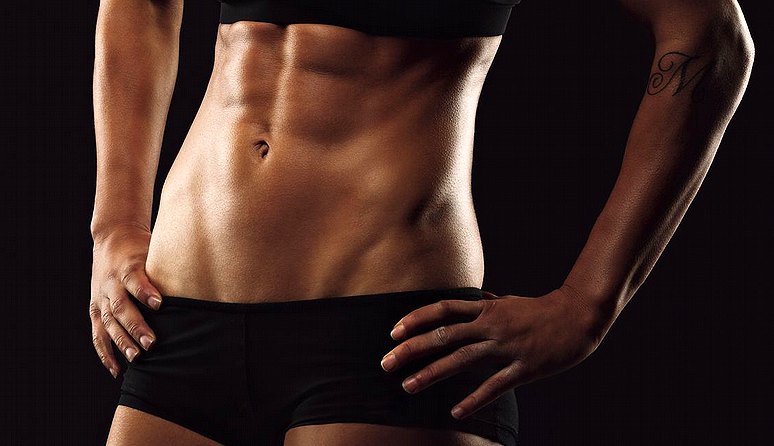There's more to life than chasing definition in certain muscle groups. Maintaining a healthy weight, for instance.
By: ERIN BERESINI
For years, we’ve been discussing the media’s role in distorting female body image. Dozens of studies and campaigns have fingered Photoshopped images in women’s emotional, mental, and physical health issues. Well boys, it seems your time has come. The pressure to look good, bulk up, and build a "six-pack," the supposed stamp of ideal male form, is gnawing away at your happiness, too, and prompting Reddit-topping threads and five-figure play-count videos. The question is: What are you gonna do about it?
Let’s back up a sec to look at just how bad the body image crisis is. A 2012 survey of 394 British men found that more than "half of men questioned (58.6 percent) said that body talk affects them personally, mostly in a negative way," with "beer belly" and "six pack" being two of the most popular terms men use to describe each other’s appearance. Even more disturbingly, more than 35 percent of men surveyed "would sacrifice a year of life to achieve their ideal body weight or shape."
Well get ready to add that year back to your life, men, because "there really isn’t an ideal," says John Haubenstricker, a Research Associate in the Department of Sports Medicine and Nutrition at the University of Pittsburgh. He’s also a dietitian, coach, and bodybuilding competitor. "Is there an ideal fruit or an ideal car? No. We need to change our terminology. What we should focus on more is: what is the healthy weight people should be at?"
There’s no magic formula for healthy weight. Body Mass Index, often used to help determine healthy weight ranges in the general population, might not be as applicable to athletes who often carry more muscle mass than the average person.
"A good description of healthy weight," Haubenstricker says, "is where you have the lowest risk for death and illness, and where it’s maintainable within your lifestyle." That means you’re not overweight, which can set you up for heart disease and Type 2 diabetes, among other things. And that means you’re not underweight either.
The images you see in the media of men with six-pack abs and "victory-v’s," Haubenstricker says, are often shot when those guys are at their absolute leanest. "Maintaining that level of leanness [around four to five percent bodyfat] isn’t typically recommended for very long," Haubenstricker says. "You’re not getting enough energy to do all of the things you want to do and improve" your fitness. "You’re also increasing your risk of injury."
As Scientific American explains, "fat is crucial for normal physiology—it helps support the skin and keep it lubricated, cushions feet, sheaths neurons, stores vitamins, and is a building block of hormones."
In other words, that "ideal" you constantly see splashed across magazine covers is bullshit. It’s an ephemeral state of being even for the people in the photos.
It’s going to take a long time for society to stop shoving that muscled-up ideal down men’s throats. As Eva Wiseman wrote in the Guardian:
The media is a construction—this is no secret. Magazines, film, TV, newspapers—they all rely on advertising. So reminding ourselves that the body types we see represented are the body types that generate purchases. Asking ourselves: "Am I being sold something here?"
The answer is almost always yes. Diet pills. Diet programs. Workout DVDs. Ab rollers. You name it. All of those things generate billions of dollars in sales by making men feel inadequate. If you believed you looked perfectly great as you are, you wouldn’t need any of those things—why fix what isn’t broken?
"Our culture has to change to be more tolerant" of different body types, Haubenstricker says. His suggestion? Start changing your terminology and perspective by checking out resources from EatRight.org and the National Heart, Lung, and Blood Institute.
The original article was posted on Outside LIVE BRAVELY.


